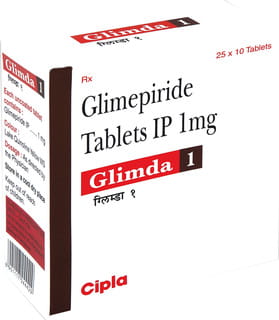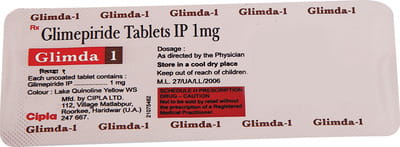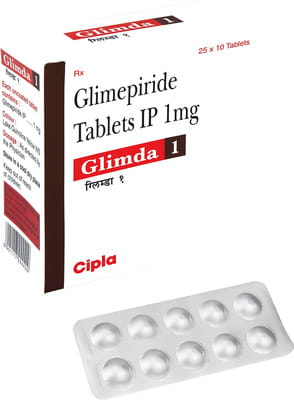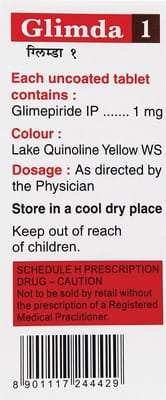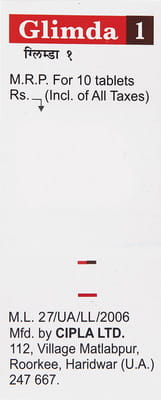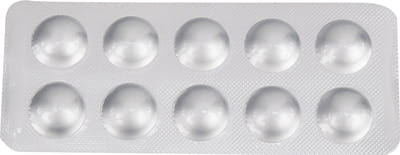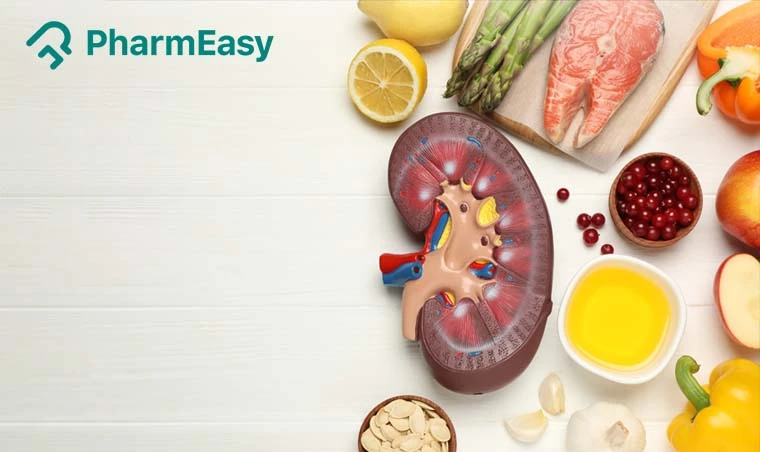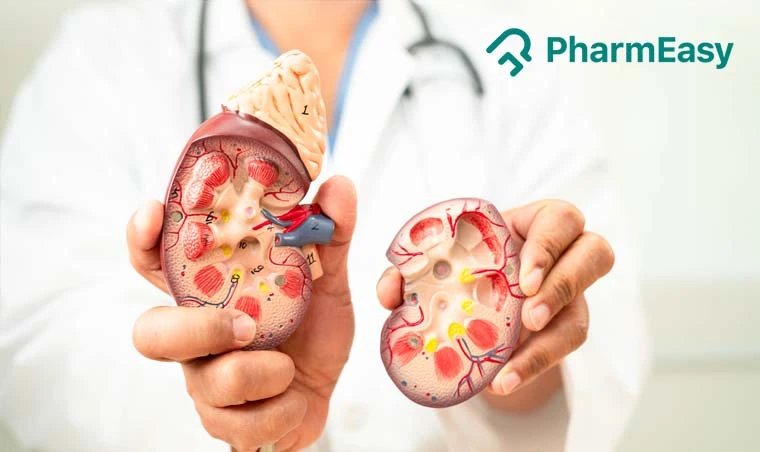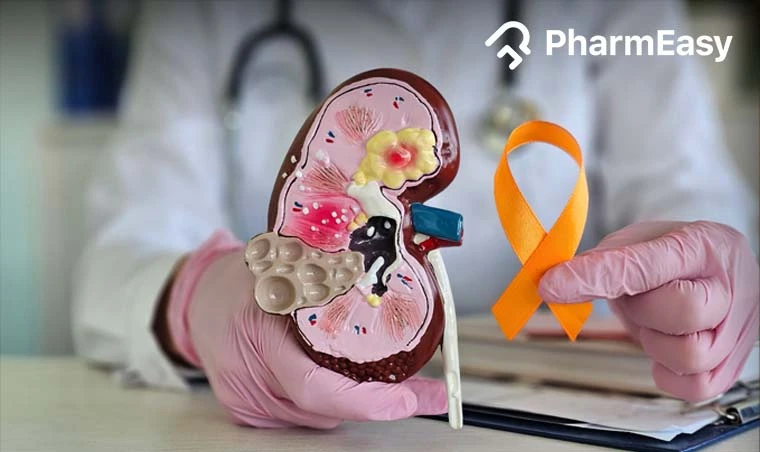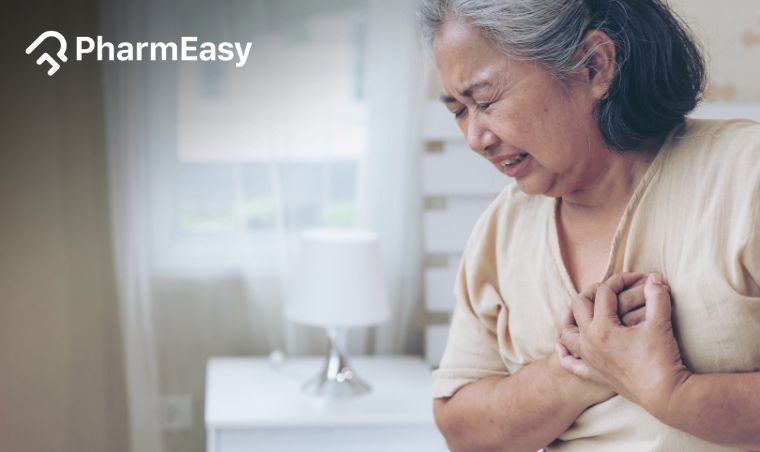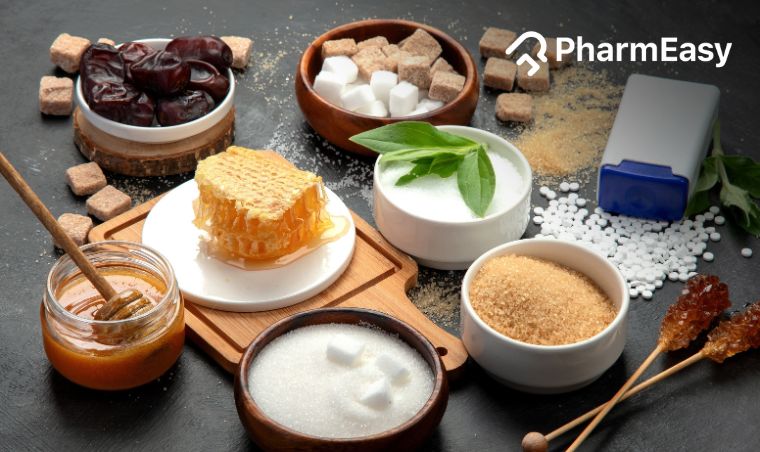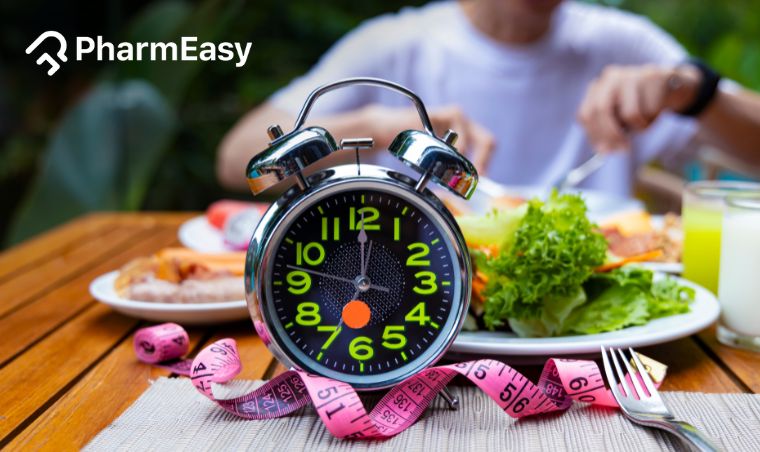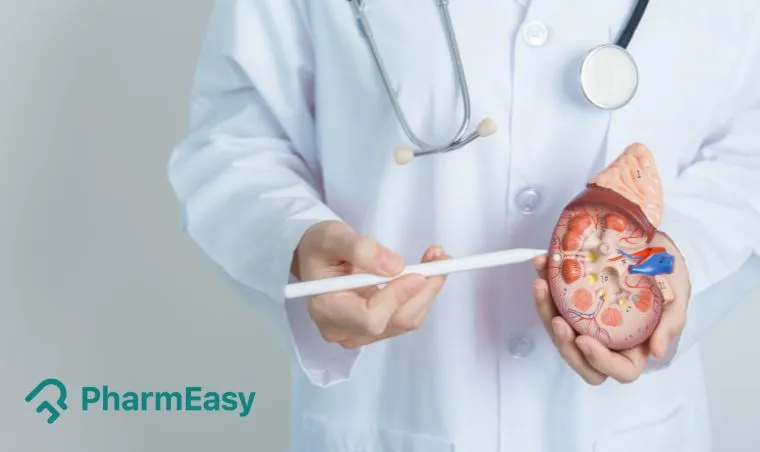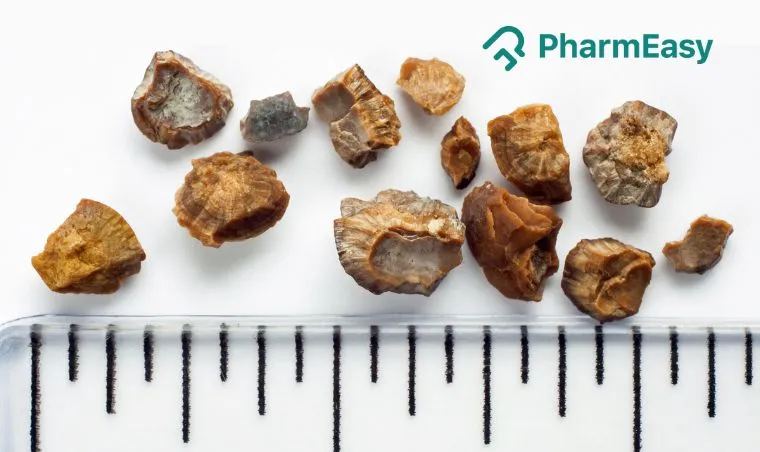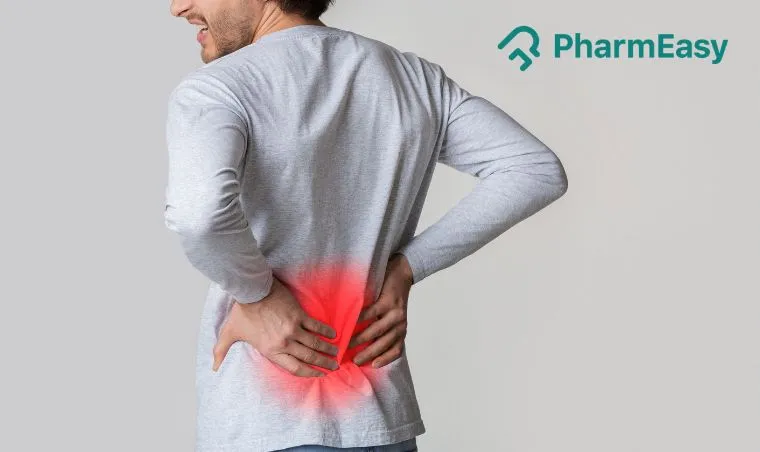Glimda 1mg Strip Of 10 Tablets
Description
Glimda Tablet is an anti-diabetic medicine containing glimepiride as its active ingredient. It is used for lowering the blood glucose in patients with type 2 diabetes mellitus when diet & exercise al
one are not able to control your blood sugar levels. Type 2 diabetes is a health condition in which your cells don’t respond normally to insulin. Insulin is a hormone that regulates how your body utilises sugar. This leads to increased blood sugar that can further lead to serious health conditions. Glimda Tablet it works by increasing the amount of insulin produced in the body and thus lowering elevated blood sugar. Take Glimda Tablet in doses and duration as prescribed by the doctor. It should be taken after having your food. Inform your doctor if you are pregnant, planning a pregnancy or breastfeeding and about all the medicines and supplements you take and all the conditions or diseases you suffer from before starting this medicine. Side effects of Glimda Tablet include nausea, dizziness, headache, weight gain and hypoglycaemia. Consult your doctor if these side effects persists.
Product Summary
| Offer Price | ₹28.42 |
| You Save | ₹11.05 (28% on MRP) |
| Contains | Glimepiride(1.0 Mg) |
| Uses | Type-II Diabetes Mellitus |
| Side effects | Nausea, dizziness, headache, weight gain, hypoglycaemia |
| Therapy | ANTI-DIABETIC |
Uses
Contraindications
- If you have an allergy to glimepiride or sulfonylureas or sulfonamides or any other ingredients of Glimda Tablet.
- If you have type1 diabetes.
- If you have the following signs like fatigue, nausea, frequent urination and muscle stiffness (due to diabetic ketoacidosis).
- If you have kidney or liver disease.
Side effects
- Nausea
- Dizziness
- Headache
- Weight gain
- Hypoglycaemia
Precautions and Warnings
Pregnancy
Breast Feeding
Driving
- Glimda Tablet can cause low blood sugar levels, which can lead to drowsiness, unconsciousness, confusion. These can be dangerous while driving.
- Consult your doctor whether you can drive a car if you have frequent episodes of hypoglycaemia.
- Keep a juice or a bar of chocolate in the car close to you while driving and in case you start feeling any of the above symptoms of hypoglycaemia, immediately drink the juice or eat the chocolate bar. Note that artificial sweeteners are not of any use in such scenarios....
Alcohol
Other General Warnings
- You experience extreme hunger, headache, nausea, vomiting, sleepiness, restlessness, aggression, reduced alertness and reaction time, confusion, shakiness, dizziness. These could be signs of low blood sugar. If you have any of these, immediately have sugar or sweet juice....
- You are suffering from severe liver disease or kidney disease.
- You have G6PD deficiency, and Glimepiride can cause hemolytic anaemia (destruction of red blood cells).
Mode of Action
How Does It Work?
- Your pancreas produces a hormone called insulin. Insulin moves sugar (glucose) from the blood into the cells. The cells then use it as fuel for energy. In type 2 diabetes, your body doesn’t make enough insulin or doesn’t utilize insulin properly, so the sugar is not able to enter the cells and stays in your bloodstream....
- Glimepiride increases the amount of insulin released from your pancreas. This insulin then lowers your blood sugar levels.
Directions for Use
- Glimda Tablet should be taken as directed by your doctor. Swallow it whole with a glass of water. Do not cut, break or chew the medicine.
- It should be taken with or after a meal to reduce its side effects. It would be best if you took it at a fixed time for optimal results and not consume it more than that prescribed by your doctor.
Interactions
Interactions with other medicines
- Some medicines can affect the way Glimda Tablet works, or this medicine itself can reduce the effectiveness of other medicines taken at the same time.
- Tell your doctor about all the medicines, supplements, or herbals you are currently taking or might take to avoid any possible interaction.
- These medicines along with Glimda Tablet can cause a drastic fall in blood glucose levels: fluconazole, aspirin, antidiabetic medicines like metformin, insulin, warfarin, ramipril, lisinopril, allopurinol....
- These medicines can interfere with Glimda Tablet and cause an increase in blood glucose: oestrogens, progestogens, diuretics, levothyroxine, rifampicin, glucocorticoids, chlorpromazine.
Storage and disposal
- Store at room temperature in a original package
- Keep our of the reach of childrens and pets
Dosage
Overdose
Missed a Dose
- If you missed any dose of Glimda Tablet, then take it as soon as you remember. If it is time for the next dose, then skip the missed dose and continue your regular dosing schedule. Do not take a double dose of medicine to compensate for a missed one....
Content Details
Dr. Nikita Toshi
BDS (Bachelor of Dental Surgery), WHO FIDES member
Dr. Ritu Budania
MBBS, MD (Pharmacology)
Frequently Asked Questions (FAQs)
Q: How long do I need to take Glimda Tablet?
Q: What are the side effects of Glimda Tablet?
References
- Glimcip tablet [Internet]. CiplaMed. 2021 [cited 11 March 2025]
- AZULIX Tablet [Internet]. Torrentianpharma.com. 2021 [cited 11 March 2025]
- Glimepiride 1 mg Tablets - Patient Information Leaflet (PIL) - (emc) [Internet]. Medicines.org.uk. 2021 [cited 11 March 2025]
- Glimepiride 1 mg Tablets - Summary of Product Characteristics (SmPC) - (emc) [Internet]. Medicines.org.uk. 2021 [cited 11 March 2025]
- CDSCO [Internet]. Cdscoonline.gov.in. 2021 [cited 11 March 2025]
Did you find this medicine information helpful?
Please rate your experience
Blog Articles
Chronic Condition Articles
Top-Tests we cover:
Top-Selling Healthcare Products:
Top-Selling Medicines:
Top-Searched Medicines:
Top Searched Vaccines:
